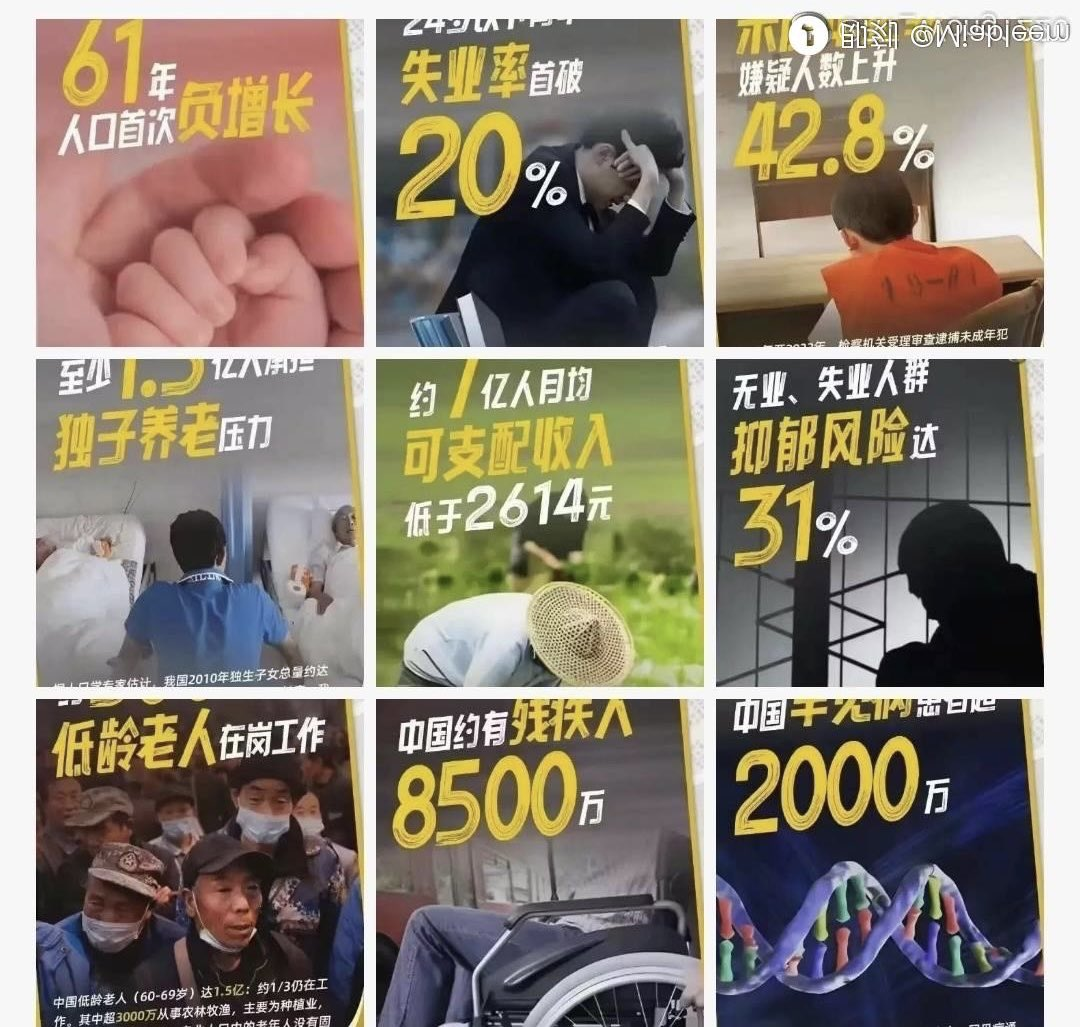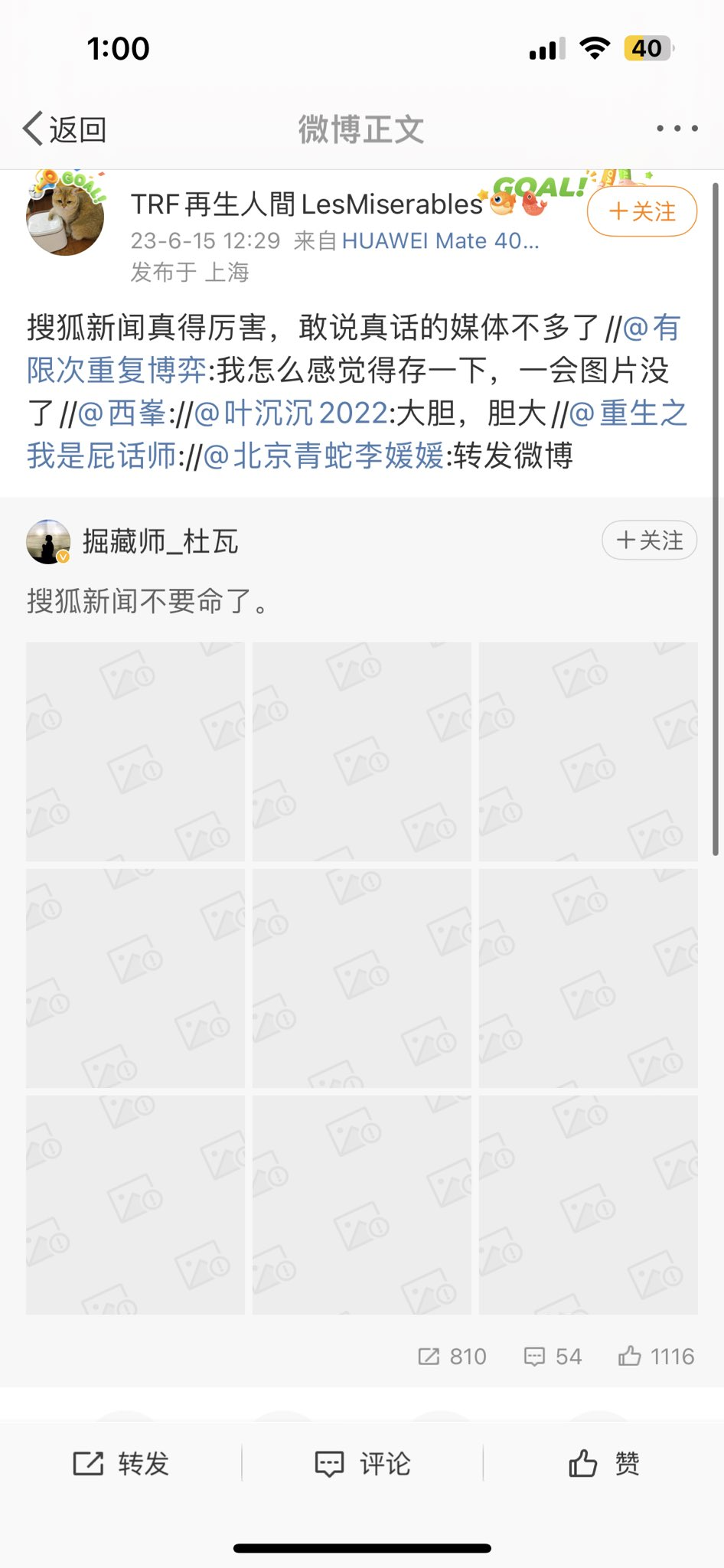CDT Chinese editors have compiled a series of year-end articles on special topics such as 2023’s most sensitive and oft-censored words (parts one and two), most notable reports, outstanding people of the year (stand-up comedians), and most notable censored essays and articles. This post introduces five (of ten) high-profile articles and essays that were targeted for censorship during 2023, on topics as varied as the “White Paper” protests, ChatGPT, Xi Jinping’s rubber-stamp reelection as president, stand-up comedians, socioeconomic inequality, migrant worker poverty, media quiescence, new restrictions on VPN use, Li Keqiang’s death and political legacy, and heightened censorship of economic analysis.
The articles and essays below represent only a small fraction of the online content that disappears each day from the Chinese internet, either through targeted deletion by platform censors, or via deletion (sometimes under duress) by the individual who posted it. In 2023, CDT Chinese editors archived and added 287 new posts, essays, and articles to our “404 Deleted Content Archive,” which now contains over 1,515 items in total. Although it is just the tip of the iceberg, CDT’s “404 Deleted Content Archive” is an invaluable resource both for preserving online Chinese discourse and for identifying topics that the party-state deems “sensitive” and endeavors to suppress.
- “Remembering the Young People Who Illuminated 2022,” by independent investigative journalist Jiang Xue
The first day of 2023 saw the deletion of an abridged version, published by the WeChat account @声声不息的我们, of Jiang Xue’s tribute to the brave young “White Paper” protesters who helped bring about an end to China’s “zero-COVID” policy and its heavy-handed and frequently capricious lockdowns. CDT Chinese editors archived the complete version of Jiang Xue’s heartfelt article, a portion of which is translated below. (Incidentally, one of 2022’s first deleted posts archived by CDT Chinese editors was Jiang Xue’s “Ten Days in Chang’an,” which described how Xi’an residents had to rely on their own ingenuity and sense of community to survive the privations of that city’s extended lockdown.)
No, you’re not asking for too much. You shout only because you can no longer bear to go on living this way.
[…] Though they may try to lock up, interrogate, and imprison you innocents, still your stories, your youthful silhouettes on dimly lit streets, your swaying arms and bouquets of flowers, and your blank sheets of paper have allowed a ray of light to pierce this stultifying iron house!
[…] Because of you, the suffering we endured during these three pandemic years has some glimmer of meaning. By raising your voices and speaking your minds, you have helped all those who have been harmed and enslaved to attain some small shred of dignity. [Chinese]
- “The Greatest Obstacle to Developing ChatGPT-style Products in China is the Fear That They Will Speak Out of Turn,” from a deleted reply to a question posted on the Q&A site Zhihu
On February 7, 2023, Zhihu platform censors deleted an incisive reply to the question “What are the obstacles preventing domestic [mainland Chinese] teams from developing products like ChatGPT—is it a lack of technology, funding, or leadership?” The Zhihu user’s deleted reply, which was archived by CDT Chinese editors, accurately identifies the crux of the problem, which is that mainland China’s stringent censorship system makes it impossible for AI chatbot output to comply with government requirements, thus impeding consumer-facing AI product research and development in China.
The greatest obstacle is the fear that ChatGPT will speak out of turn. Large language models are a black box. You can’t guarantee that they will never say something impermissible. And once the wrong thing is said, it would be a death blow to any company [behind it]. For this reason, no team would be willing to risk [creating such a product], but even if they did, they certainly wouldn’t make it available to the general public. Five years from now, ChatGPT may well have replaced Google in most parts of the world, but in mainland China, we’ll still be using Baidu. [Chinese]
The reply proved prescient: 2023 would see a number of setbacks for consumer-facing AI products in China. In February, Chinese regulators reportedly ordered mainland companies to stop using ChatGPT, and the ChatYuan AI chatbot was suspended just days after its launch. In April, the Cyberspace Administration of China released draft regulations on the development of generative artificial intelligence models that would require “AI-produced content [to] embody core socialist values.” On Chinese social media, the compliant AI chatbots were humorously dubbed “ChatXJP.” As one internet user joked, “To enter China, AI must first join the Chinese Communist Party and study Xi Jinping Thought.” By August, in response to Chinese government regulations, Apple had removed over 100 generative AI and ChatGPT-related apps from its mainland Chinese store. The following month, viral screenshots purportedly showed a Xiaomi chatbot erring surreally on the side of caution, praising China’s political system in response to requests for it to sing a children’s song.
- “The Danger of Unanimous Elections,” by People’s Daily
On March 10, China’s National People’s Congress, a rubber-stamp body that meets in full session once annually, re-elected Xi Jinping to a third five-year term as president. The vote was unanimous, with 2952 delegates voting “aye,” and none voting “nay” or abstaining. This was soon followed by a rash of deletions of online articles perceived to be critical of Xi Jinping’s unanimous, uncontested re-election. Online discussion of the unanimous vote was tightly censored, and search restrictions were placed on the hashtag #2952#, referring to the number of votes Xi won.
Party mouthpiece People’s Daily went so far as to self-censor “The Danger of Unanimous Elections,” an essay it had published back in 2011. The essay, which was deleted from the People’s Daily website and its WeChat and Weibo accounts, had cautioned: “If the people’s will continues to be hijacked through ‘unanimous elections,’ it will fuel public resentment.” (In 2003, incidentally, Xi Jinping himself had warned against the unanimous election of cadres.)
Censors also targeted essays about Yuan Shikai, the first president elected after China’s Republican Revolution of 1911, whose increasingly authoritarian rule culminated in him being “unanimously elected” as Emperor by a quiescent legislature. Online comparisons between Yuan Shikai and Xi Jinping date back to at least 2018, and Xi is sometimes referred to as “the second coming of Yuan Shikai” (二次袁 èrcìyuán), also a homophonic pun on “two-dimensional space” or “Anime, Comics, and Games” (二次元 èrcìyuán). Even a “this day in history” article on Yuan’s 1912 election that made no overt or covert reference to Xi was summarily deleted from WeChat.
2023 was a challenging year for China’s beleaguered stand-up comedians. In February, comedian Meng Chuan’s Weibo was banned, supposedly for the political tenor of some remarks he made. Wang Yuechi, also known as Chizi, was accused of making fun of China’s zero-COVID policy during his North American tour, after which his artist pages and biographical information were taken down from various Chinese websites. In May, comedian Li Haoshi, who performed under the stage name House, was forced to apologize for making a joke that some felt disparaged People’s Liberation Army (PLA) soldiers. (In the joke, Li used a PLA slogan to describe the enthusiasm with which his parents’ feral dogs chased after squirrels.) Despite the apology, Beijing’s Municipal Culture and Tourism Bureau accused Li of “severely insulting” the PLA, suspended all shows by the Shanghai comedy studio that employed him, and fined the studio the equivalent of nearly $2 million U.S. dollars. Police opened an investigation into Li, and he was subsequently banned from comedy. Even some of Li’s online defenders were briefly arrested.
Following the Li Haoshi incident, an essay by a former writer for a comedy studio was deleted from Weibo, likely for its depiction of the challenges of trying to be funny while also navigating the shoals of comedy censorship. CDT translated some of the censorship-related sections of the essay, which concluded with this lament: “Chinese comics expend 80% of their energy writing jokes, and 500% of their energy dealing with censorship.”
CDT also published a full translation of current affairs commentator Chang Ping’s humorous imagining of a stand-up comedy routine in a future “new China,” circa 2049. “Back then, audiences weren’t sure if fun was even allowed,” says the fictional future stand-up comedian, “or if a laugh would get them investigated by the Beijing ‘culture cops.’ Not that the performers cared whether the audience was laughing or not—it wasn’t their job to care. All they had to worry about was making sure that their popularganda was edutaining enough.”
In recognition of the many perils of being a stand-up comic (or a comedy writer, or a manager of a comedy club or studio) in mainland China today, CDT Chinese editors chose stand-up comedians as our “2023 People of the Year.”
In June, a striking series of infographics meant to highlight social issues such as poverty, disability, depression, youth unemployment, and elder care were scrubbed from Weibo, leaving only the blank gray boxes that Weibo uses to signal censored image content. The original series, which featured colorful graphics and bold statistics, was published by Sohu News as part of their “Spotlight Project,” a public welfare project that aims to shine a spotlight on some of China’s most pressing socio-economic problems.
The screenshot below shows the nine images as they appeared before they were censored. Some of the eye-catching statistics include: “Youth unemployment tops 20%,” “Juvenile criminal prosecutions up 42.8%,” “Unemployed individuals at 31% risk of depression,” and “China has 85 million disabled individuals.”

The screenshot below shows that by June 15, all of the infographics had disappeared from Weibo and been replaced by blank gray boxes, signaling deleted image content.

The courage of Sohu News in covering the socio-economic issues that affect people’s lives stands out. WeChat essayist 晖思 (Hui Si), praising Sohu News editors for their focus on the living conditions of ordinary people, write that their infographics reminded him that “the news isn’t dead, idealism isn’t dead, conscience isn’t dead.”
As for the source material on which the infographics were based, most of the data and reports were still available, uncensored, on the websites of various news organizations and Chinese government departments—although the figures on youth unemployment were apparently so dire that in August 2023, China’s National Bureau of Statistics simply stopped publishing them.
For more on internet terms including ChatGPT, the second coming of Yuan Shikai, the White Paper (or Blank Paper) protests, and more, please see our recently released ebook China Digital Times Lexicon (20th Anniversary Edition).






